#interview: john
Explore tagged Tumblr posts
Text
'I look in the mirror'
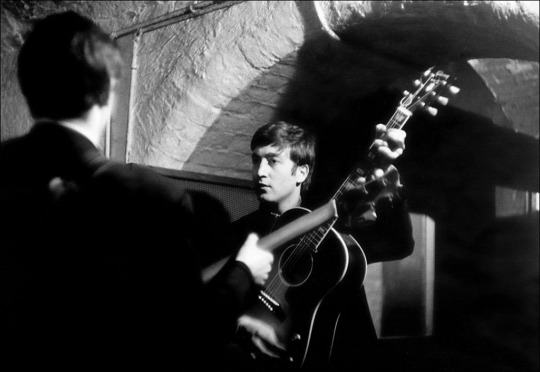
19 February 1963, the Cavern, photo by Michael Ward
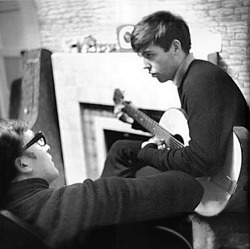
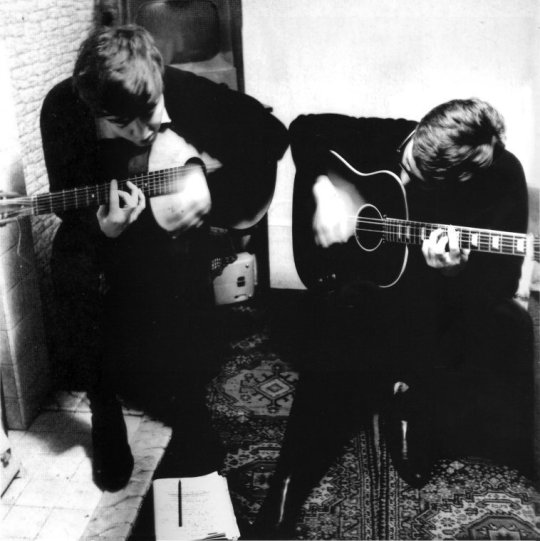
Photo by Mike McCartney
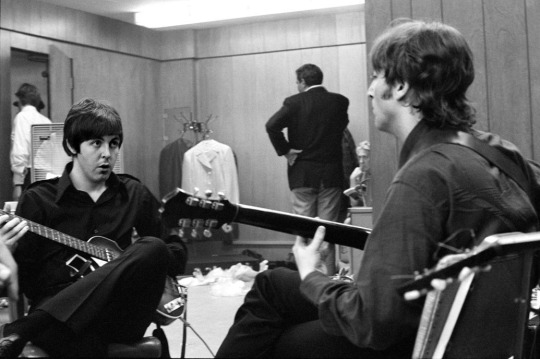
August 13, 1966, photo by Bob Bonis
We wrote with two guitars, John and I. And, as I’ve mentioned previously, the joy of that was that I was left-handed while he was right handed, so I was looking in a mirror and he was looking in a mirror. We would always tune up, have a ciggie, drink a cup of tea, start playing some stuff, look for an idea. Normally, one or the other of us would arrive with a fragment of a song. ‘Please Please Me’ was a John idea. John liked the double meaning of ‘please’. Yeah, ‘please’ is, you know, pretty please. ‘Please have intercourse with me. So, pretty please, have intercourse with me, I beg you to have intercourse with me.’ He liked that, and I liked that he liked that. This was the kind of thing we’d see in each other, the kind of thing in which we were matched up. We were in sync.
(Paul McCartney, about Please Please Me in The Lyrics, 2021)

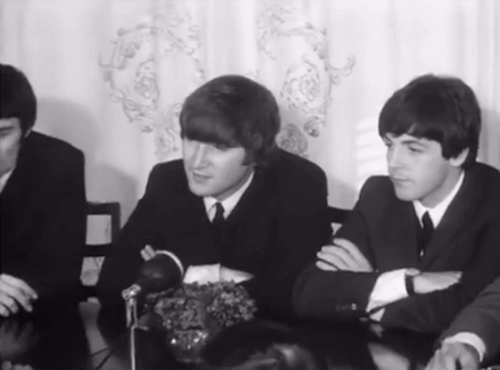
gifs by javelinbk
A lot of what we had going for us was that we were both good at noticing the stuff that just pops up, and grabbing it. And the other thing is that John and I had each other. If he was sort of stuck for a line, I could finish it. If I was stuck for somewhere to go, he could make a suggestion. We could suggest the way out of the maze to each other, which was a very handy thing to have. We inspired each other.
(Paul McCartney, about Eight Days A Week in The Lyrics, 2021)
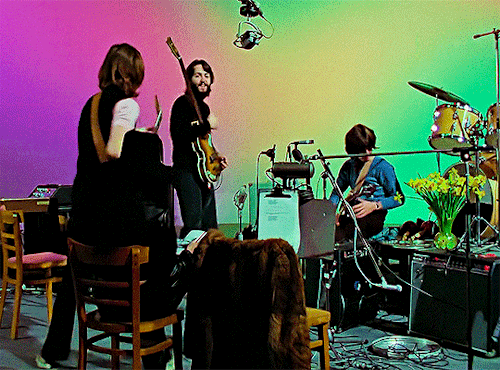
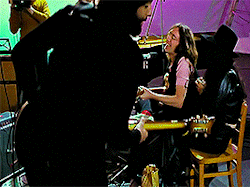
gifs by nikidontsurf
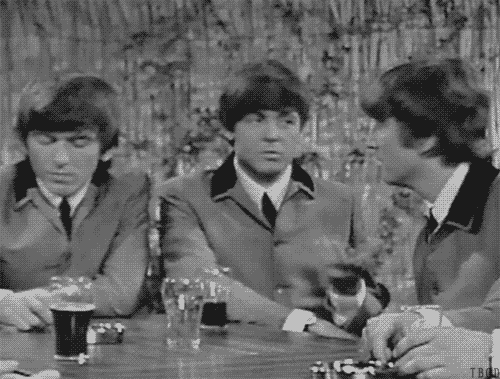
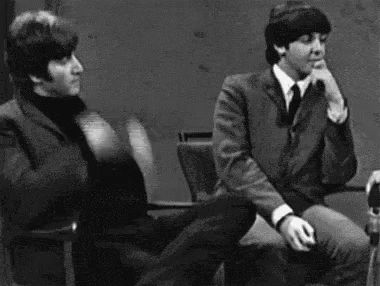
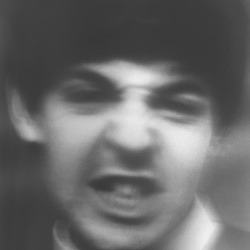

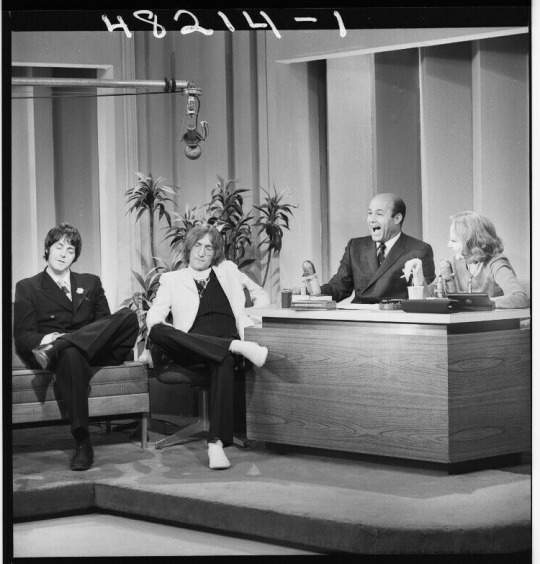
When John and I met, the first year of our friendship was spent talking about these cover versions, the records we loved, and then playing them again and again. As we got to know each other, we practised these various covers until one day the conversation went, ‘You know, I’ve written one or two songs.’ And he said, ‘Yeah, so have I.’ That gave us something in common that was itself wholly uncommon. I went to a school of a thousand boys and I’d never met anyone who said he’d written a song. Mine were just in my head. So were John’s. We took each other by surprise. And then the logical extension was, ‘Well, maybe we could write one together.’ So that’s how we started. And we became versions of each other.
(Paul McCartney, about The Other Me in The Lyrics, 2021)
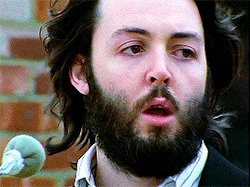


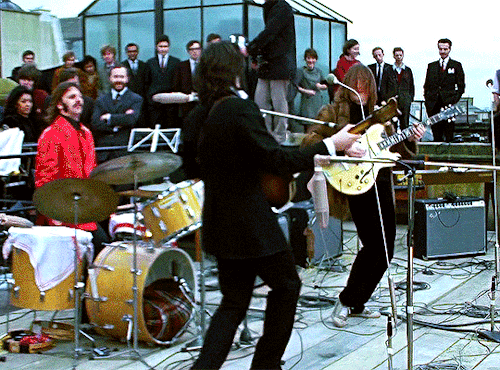
gifs by stewy
Q: "Can I ask you about Lewis Carroll?" A: "Oh, Lewis Carroll. I always admit to that because I love 'Alice In Wonderland' and 'Alice Through The Looking Glass.' But I didn't even know he'd written anything else. I was that ignorant. I just happened to get those for birthday presents as a child and liked them. And I usually read those two about once a year, because I still like them."
(John Lennon, June 16, 1965, interview for BBC)


Paul McCartney in his garden at Cavendish Avenue, 7; photo by Barry Lategan (for Observer 'What Makes A Man Stylish?', July 1968)
I think of the imagined world of Lewis Carroll [Alice's Adventures in Wonderland and Through the Looking-Glass, and What Alice Found There] that John and I both loved so much.
(Paul McCartney, about I’ll Get You in The Lyrics, 2021)
We’d been together so much that if you had a question, we would both pretty much come up with the same answer. [about their hitchhike to Spain by way of Paris] <…> It’s a bit crude, but it’s fair to say that, in general, I’d had a good life and John hadn’t. His life had been tougher, and he had to develop a harder shell than I did. He was quite a cynical guy but, as they say, with a heart of gold. A big softy, but his shield was hard. So that was very good for the two of us. Opposites attract. I could calm him down, and he could fire me up. We could see things in each other that the other needed to be complete.
(Paul McCartney about Ticket To Ride in The Lyrics, 2021)
youtube
Sometimes I look in the mirror Is nobody there? But I just keep on staring and staring No Can it be? Can it be? Can it be? And if I look in the mirror And nobody´s there But I just keep on staring, and staring No Is it me? Is it me? Is it me?
(John Lennon, circa 1977)
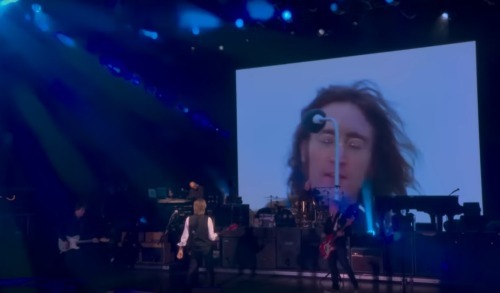
+ this
#'when making art we create a mirror in which someone may see their own hidden reflection' (Rick Rubin)#john lennon#paul mccartney#john and paul#mirror mirror (on the wall)#the songs we were singing#the nerk twins#Youtube#please please me#i'll get you#eight days a week#the other me#i've got a feeling#interview: paul#interview: john#lewis carroll#get back#peter jackson#the beatles#george harrison#ringo star
482 notes
·
View notes
Text
I'm not such a bad boy no more
(Not Such A Bad Boy, 1983/84)
LENNON: But the so-called thing of the Beatles was the fact that we were pretty well educated and not truckers. Paul could have gone to university. He was always a good boy.
PLAYBOY: "Fool on the Hill"? LENNON: Paul. Proving he can write lyrics if he's a good boy.
–John Lennon, unprompted, for Playboy magazine (September 1980)
923 notes
·
View notes
Text
Julien Baker covers No Children by the Mountain Goats + an introduction from John Darnielle
➕
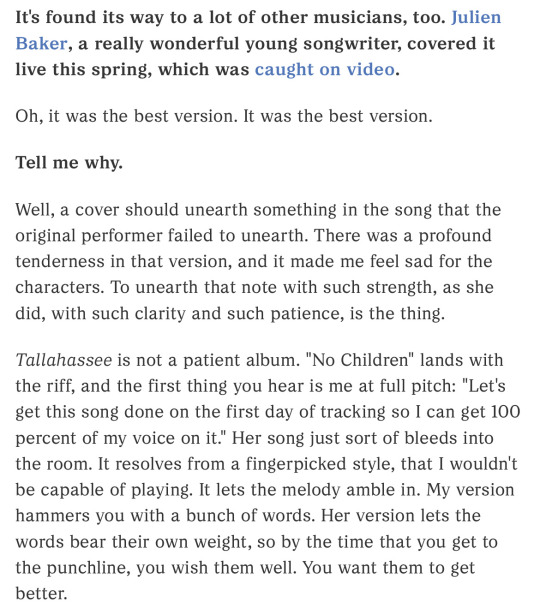
Excerpt from “I Hope We Both Die: How The Mountain Goats Wrote The Ultimate Anthem To Dysfunction” an interview with John Darnielle
#julien baker#john darnielle#boygenius#the mountain goats#no children#2018#april 2018#video#interview#archival
10K notes
·
View notes
Text
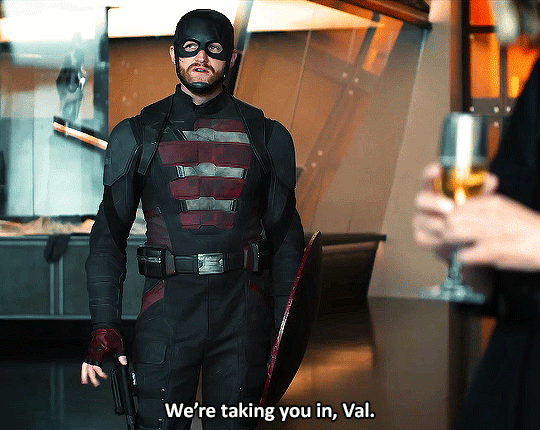
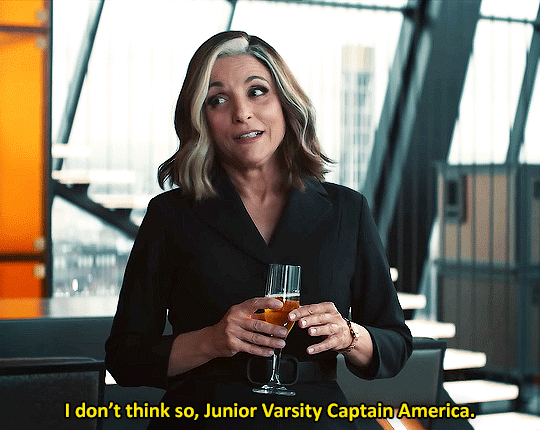
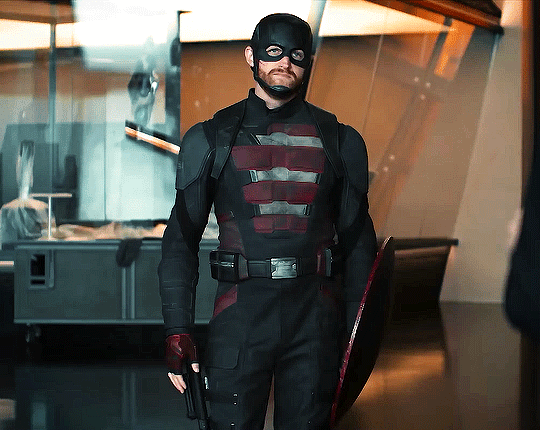
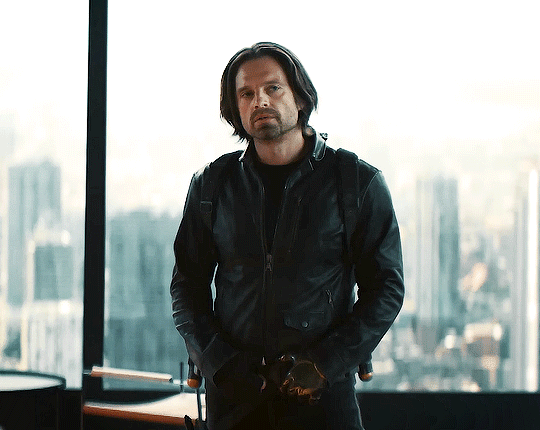
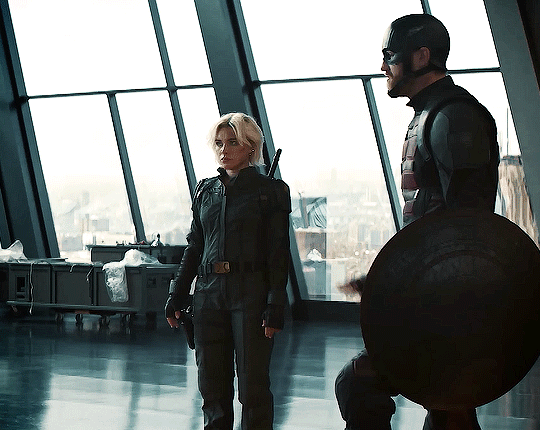
Thunderbolts* (2025)
#bucky barnes#john walker#valentina allegra de fontaine#winterwalker#winteragent#thunderbolts#thunderbolts spoilers#thunderboltsedit#marveledit#marvel#my edit#userashe#useraurore#userelysia#userdori#tuseraud#mcufam#marveladdicts#one of my favorite moments in the whole movie#all it takes is a Look for walker to fall in line#what a good boy#I don't usually like dom!bucky#but he can dom walker#as a treat#also I can't watch this scene now without thinking about seb saying 'keep it TIGHT keep it together' in that one interview
1K notes
·
View notes
Text
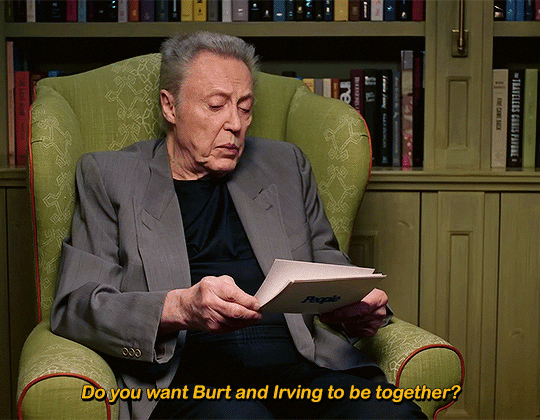
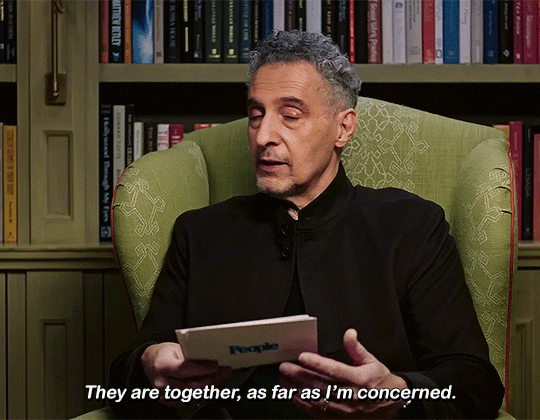
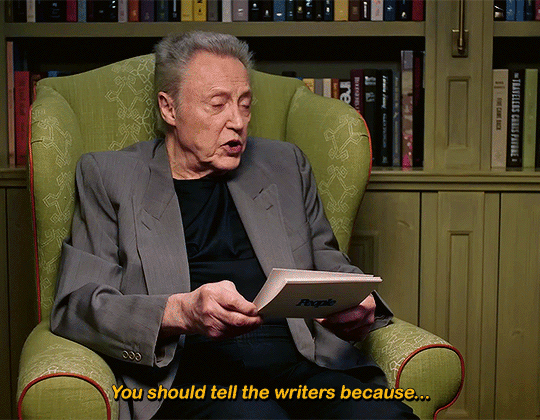
interviews that have a whole new context after 2x09 dropped
#Severance#severanceedit#burving#Burt x Irving#Irving x Burt#John Turturro#Christopher Walken#BurtIrving#figmentofedit#also what shade from Chris Walken. calling out the writers publicly in an interview lmaooooooo
2K notes
·
View notes
Note
I think George still bears resentment toward me for being a daddy who left home
(John Lennon, interview with David Sheff for Playboy, September, 1980)
oh my god please post the chapter of the girl who imagined john and paul were her parents
here you go, anon!
Cressida Connolly's Tale
I was born in 1960 and the Beatles were an integral part of my childhood. They were never not on the turntable of my older half-siblings' record players, so that their songs really did seem to be the soundtrack to life itself. The gaps between the release of their records - in some cases as little as only months apart - seemed interminable, as distant and as longed-for as the beginning of the school holidays appeared to be, on the first day of a new term.
I was the sort of child who had an imaginary friend. This perhaps explains why I thought of Paul and John as essentially a second mum and dad. Or it could be a case of extreme narcissism. In any case, my real-life father was a bespectacled writer and could be difficult, preoccupied and a bit grumpy: John shared these characteristics. Paul, though, was cosy and round-faced and chipper; all qualities you'd want in a mother. I felt that, if Paul was my mum, all the children in my class would want to come back to mine for tea. He'd whistle along with the kettle and flash his cheeky grin and everyone would think my family were the nicest, happiest family.
All children long for their parents to love each other, and so it was with me and Paul and John. When they came on the telly, I was hungry for evidence of their mutual affection - and there it was: the complicit smirking, the suppressed giggles; like Dud and Pete with guitars. Dad/John was cleverer than Mum/Paul, and even a bit sarky sometimes; but Mum/Paul could handle him, coax him towards good humour.
I didn't really know that they wrote songs separately until The White Album came out and my half-brother told me that John had written Julia about his own, dead mother. This brought up feelings too complicated to be easily managed. How was it possible that there were things about John/Dad I didn't know? In real life, too, there was a paternal grandmother I had never known, so this was at least feasible. But why had I never seen a photograph of John's mother, when she was, in a sense, my own grandmother?
My main concern was how it could be possible that Paul and John wrote songs apart when they were indivisible. Lennon/McCartney: one entity. On the other hand, this revelation did make sense of quite a lot of their output. Clearly, Paul/Mum was thinking of the family when composing such child-friendly tunes as 'The Fool on the Hill', 'I Will', 'Martha, My Dear' and - of course - 'Your Mother Should Know'. Whereas John/Dad had obviously gone off to sulk in his writing room and compose peculiar stuff like 'I Am the Walrus'. This had its equivalent in real life, where my actual father would be in the library thinking about the Cantos of Ezra Pound while my mother was in the kitchen tapping her foot to Fred Astaire singing Cole Porter.
The news of their split, which came in April 1970, was cataclysmic. (Decades later, my own daughters would take the news of Geri's departure from the Spice Girls with the same horror and disbelief.) A divorce! Breaking up the family! It wasn't possible, surely? Could it be legal, even? Someone would stop them and bang their heads together and tell them to think of the kids - wouldn't they?
And then, with a sickening inevitability, came the step-families. At least Linda had a kind face and obviously made Paul/Mum happy. But she did bring her daughter, Heather, into the new family; which meant that Paul/Mum now lived with an actual little girl of his own. Competition, a usurper. Whereas Yoko... well, John/Dad didn't look at all OK. He was pale and unshaven and remote. (The fact that Yoko had a daughter too didn't register until I was a grown-up.) Also, why did she have to be around, ALL THE TIME? How would I ever get a minute alone with him, now? These puzzles and resentments and sorrows went on for a least two years, possibly three. Then in time I became a teenager and forgot all about my parents and only thought about the Jackson Five and the Bay City Rollers and how to style my hair like Suzi Quatro.
One Two Three Four: The Beatles in Time, Craig Brown (2020)
208 notes
·
View notes
Text
As I read the other day, he [Paul] said in one of his ‘fanzine’ interviews that he was trying to put some distance between The Beatles and the public – and so there was this identity of Sgt Pepper. Intellectually, that’s the same thing he did by writing ‘He loves you’ instead of ‘I love you.’ That’s just his way of working.
(John Lennon, 1980, All We Are Saying, David Sheff)
“Even if I’m writing something very specific, I veil it. If I want to write about loneliness, it will be Eleanor Rigby who carries the can. “With Little Willow, I was very affected by Maureen’s death. The fragility of life is in that song. But it wasn’t called Maureen, if you get what I’m saying. It was called Little Willow.”
(Paul McCartney on the Nineties, jamming with Ringo and life with wife Linda by Simon Cosyns, The Irish Sun, 7 Aug 2020)
#john reads paul's interviw in in ‘fanzine’! <3#also#he loves you#she loves you#but if you could love me now I wouldn't be in a cage#the songs we were singing#paul and music#interview: john#interview: paul#john lennon#paul mccartney#1980#2020#david sheff#cage#john and paul#eleanor rigby#little willow
229 notes
·
View notes
Text

Interview March 2008 - Michelle Buswell by John Midgley
2K notes
·
View notes
Text
And Keanu says something really interesting to me on the first John Wick. He comes to me and he goes, “Look, just so you know, little bit of advice, when you edit, once a week, you should see the edit on the big screen.” And I’m like, OK, we’ll try. Later, alone with him, I’m going, “Well, why?” He’s like, “I’m a big-screen actor.” And I had no fucking idea what that meant. I thought it meant a movie star. And he’s like, “No, no, no, no.”
And he started talking to me about non-verbal acting, like gestures, motions. And he’s like, “Look, when you see me on a little monitor and I give this little look, it’s one thing. But when you see it on a 40-foot screen, that look’s going to say a lot. That’s what I want to play this guy as. So just please be aware of it, so when we punch in on the closeups, it’s going to mean something.” And it kind of really clicked for me right there.
I’ve always been fascinated by non-verbal gesture, body language. Keanu would go through and strip his dialogue down. It was like, “No, no, nope. I’m just going to cuddle the puppy.” In the first John Wick, he doesn’t talk for 32 minutes. Try to sell that one to a studio: You have Keanu Reeves and you’re not going to let him talk.
Chad Stahelski on what the John Wick movies owe to Buster Keaton
22K notes
·
View notes
Photo
John (December 8th, 1970, Jann Wenner for Rolling Stone): I was – uh, we were all hurt that he didn’t tell us, that – what he was going to do. I think he claims that he didn’t mean that to happen, but that’s bullshit. He called me in the afternoon of that day and said, “I’m doing what you and Yoko were doing, last year.” [long pause] And I said, “Good,” you know. ‘Cause last – the time last year, they were all looking at us as if we were strange, trying to make a life together and doing other things than being fab, fat myths. So he rang me up that day and said,
“I’m doing what you and Yoko are doing, and putting out an album, and I’m leaving the group too,” he said. I said, “Good.” I was a little – you know, feeling a little… strange, because he was saying it this time. Although it was a year later. And I said – well, I said, “Good. That’s it.” ‘Cause he was the one that wanted The Beatles most.
And then the midnight papers came out [with Paul’s McCartney LP press release]. I was cursing because I hadn’t done it!
Also John (September 5th, 1971 with Peter McCabe and Robert Schonfeld):
The day he rang up to say he was splitting with the group – oh, he didn’t tell me he was split, he told me he was putting out an album – was, “See, I’m now doing what you and Yoko were doing last year. And I understand what you were doing.” So I said, “Good luck to you…”


April 8th, 1970:
Paul tells John “I’m not a Beatle either”
“Good, that’s two of us.”
April 10th, 1970:
Kits arrive
“Paul leaves Beatles”
RELEASE of kits
heavy Press hanging around house
News at 10:00
— Paul McCartney, personal diary entries (w/ writing by Paul, Linda, and Heather McCartney).
#'that means nothing really happened if you’re not gonna say anything'#'I was a little – you know feeling a little... strange because he was saying it this time'#'I mean#he’s a good PR man Paul. He – he’s about the best in the world probably'#never understood why is everyone repeating this stupidly#common use your brain#it was one of shittiest pr campaign ever#it didn't help to sale the album#it maked Paul look shitty to the world#it badly injured John's feelings#it made Paul justify himself#such a great pr#the beatles#paul mccartney#john lennon#interview: john#john and paul#Peter McCabe#Robert Schonfeld#Jann Wenner#1971#1970#divorce#accidental divorce
489 notes
·
View notes
Text
Just found Hugh Grant’s Reddit AMA from 2014, featuring such gems as “I love to kill” and “I will pour almost anything down my throat”
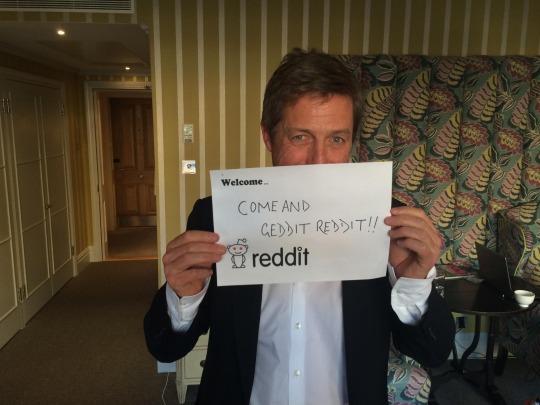






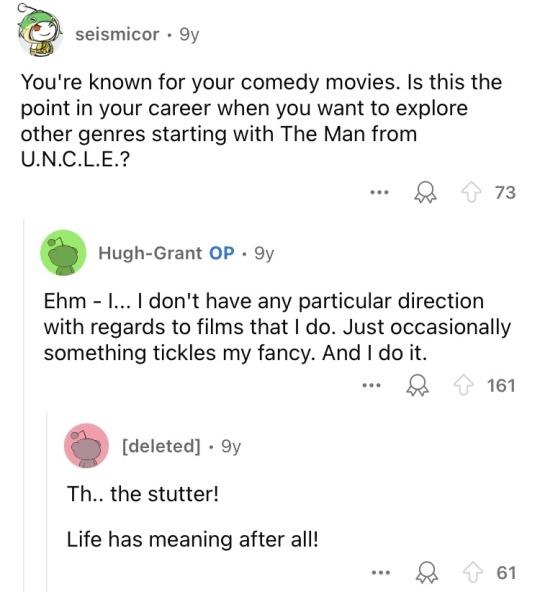


Source: Hugh Grant Reddit AMA
#hugh grant#reddit ama#romcom#british actors#bridget jones#sense and sensibility#notting hill#love actually#heretic#the man from uncle#bitter moon#paddington#julia roberts#emma thompson#john cusack#marvel#the hulk#james bond#celebrity interviews#british humour#i am having so much fun with this#thank you hugh
5K notes
·
View notes
Text
to me, this is cinema
#the shredder shoes pull it all together#guys please go watch that interview if you havent#its so funny#rottmnt#tmnt#john cena#rottmnt cast
4K notes
·
View notes
Text
Paul Mccartney in an interview with Charlie Rose talking about meeting John Lennon for the first time, October, 1991
PAUL: Who is this person? But then I met him a little later that day and uh, I was surprised at how drunk and horrible he was. Cause I was younger then, he was just sixteen-
CHARLIE: He was a bad influence on you, was he?
PAUL: -Well he was getting a six pack down him y’know, he was sat there and he was getting going. I was later to learn those tricks but I was a little bit innocent at the time. Yeah, I remember this guy sort of smelly breath over my shoulder, sort of thinking, “Oh dear me, hoodlum, y’know hello.”
There’s soooo many things I love about this particular telling of the story of John and Paul first meeting:
- His description seeming like such a caricature of a Liverpudlian teenage boy but knowing John was JUST LIKE THAT
- ‘I was a little bit innocent at the time.’ as if John corrupted him with his ‘hoodlum’ shenanigans
- It’s so clear that John was this image of older boy coolness to Paul when they were younger; the way he talks about his initial aversion to John’s antics while smiling, knowing that John’s influence would shape the rest of his life.
The comparison of younger Paul to a teenage girl with a crush on an older boy is so true- I mean, just look at him giggling about drunk John peering over his shoulder, defiling his ‘innocence’
#mclennon#macca#lore#he’s whipped your honour#this whole interview has so many moments where Paul de-rails the conversation to talk about John#could talk about John corrupting Paul’s innocence for hours#no wonder jim mccartney disapproved#don’t be hangin around with that drunk lennon boy paul#little did he know…#the beatles#beatles#mccartney#lennon#john and paul#paul mccartney#john lennon#my post
572 notes
·
View notes
Text
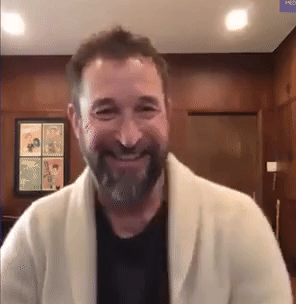
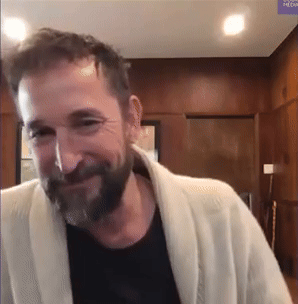
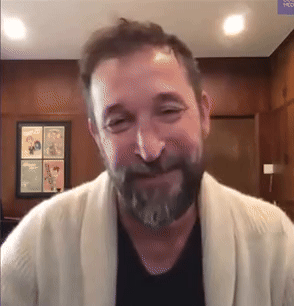
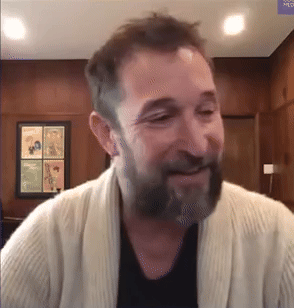
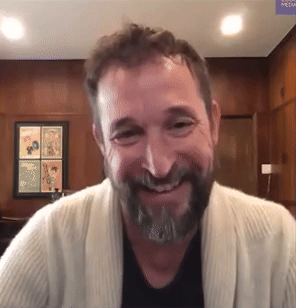

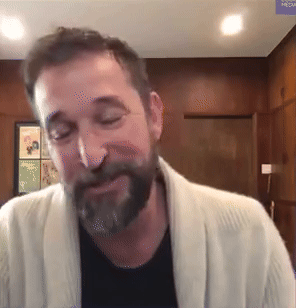
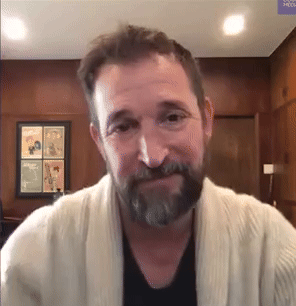
“I watched Noah as a young man go through this complete loss of his anonymity. He has dealt with it by becoming open and curious and available to people, which not everybody does. He’s very intelligent, very well read and fantastically empathetic. Honestly, he’s one of the great human beings in my life.” ~John Wells, executive producer of “ER” and “The Pitt”
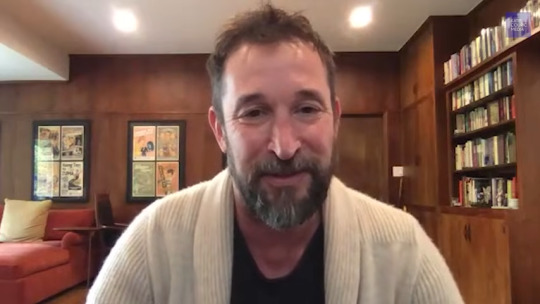
Watch the full interview
#noah wyle#humble#thoughtful human#cutie#michael robinavitch#dr robby#the pitt#the pitt max#season 1#katie couric#interview#hands to heart xoxo#tv doctors#medical drama#ER#john carter#john truman carter iii#dr carter#john wells#quote#gifs
486 notes
·
View notes
Text
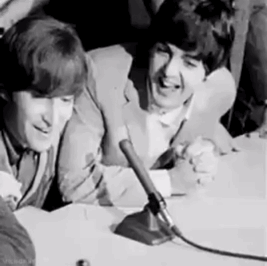
mama what is happening under that table
#the beatles#paul mccartney#john lennon#mclennon#gay people#what’s going on here#freaky ass interview
577 notes
·
View notes
Text
‘I’ve had enough’
I’d been keeping largely quiet about John and The Beatles split-up in the press. I didn’t really have many accusations to fling, but being John, he was flinging quite a few in interviews [with Jann Wenner for Rolling Stone]. <…> John would say things like, ‘It was rubbish. The Beatles were crap.’ Also, ‘I don’t believe in The Beatles, I don’t believe in Jesus, I don’t believe in God’ [Plastic Ono Band album]. Those were quite hurtful barbs to be flinging around, and I was the person they were being flung at, and it hurt. So, I’m having to read all this stuff, and on the one hand I’m thinking, ‘Oh fuck off, you fucking idiot,’ but on the other hand I’m thinking, ‘Why would you say that? Are you annoyed at me or are you jealous or what?’ <…> I was sort of answering him here [Dear Friend], asking, ‘Does it need to be this hurtful?’ I think this is a good line: ‘Are you afraid, or is it true?’ meaning, ‘Why is this argument going on? Is it because you’re afraid of something? Are you afraid of the split-up? Are you afraid of my doing something without you? Are you afraid of the consequences of your actions?’ And the little rhyme, ‘Or is it true?’ Are all these hurtful allegations true? This song came out in that kind of mood. It could have been called ‘What the Fuck, Man?’ but I’m not sure we could have gotten away with that then.
(Paul McCartney, The Lyrics: 1956 to the Present)
“When I slagged off the Beatle thing in the papers, it was like divorce pangs, and me being me it was blast this and fuck that, and it was just like the old days in the Melody Maker, you know, ‘Lennon Blasts Hollies’ on the back page. You know, I’ve always had a bit of a mouth and I’ve got to live up to it. Daily Mirror: ‘Lennon beats up local DJ at Paul’s 21st birthday party’. <…> “So y’see, all that happened when I blew my mouth off was that it was an abscess bursting, except that mine as usual burst in public. <…> …the trouble is people just wanted bigmouth Lennon to shout about the lows. So I made a quick trip to uncover the hidden stones of my mind, and a lot of the bats flew and some of them are going to have to stay. I’ve got perspective now, that’s a fact.
(John Lennon, interview with Ray Coleman for Melody Maker: Lennon – a night in the life, September 14th, 1974)
John actually had Allen Klein and Yoko in the room, suggesting lyrics during writing sessions. In his song ‘How Do You Sleep?’ the line ‘The only thing you done was yesterday’ was apparently Allen Klein’s suggestion, and John said, ‘Hey, great. Put that in.’ I can see the laughs they had doing it, and I had to work very hard not to take it too seriously, but at the back of my mind I was thinking, ‘Wait a minute, All I ever did was “Yesterday”? I suppose that’s a funny pun, but all I ever did was “Yesterday”, “Let It Be”, “The Long and Winding Road”, “Eleanor Rigby”, “Lady Madonna”, . . . – fuck you, John.’
(Paul McCartney, The Lyrics: 1956 to the Present)
['How Do You Sleep']’s not serious. Like, if Paul was really, really hurt by it, I’ll soo– I’ll know by the vibes, come round. Even if he doesn’t call, well, I’ll explain it to him. I’ll even write to him, you know. If he really really thinks it’s – thinks it’s really really serious.
(John Lennon,September 9th, 1971, interview with Howard Smith)
Then we had that fight Paul and me had through the Melody Maker, but it was a period I had to go through.
(John Lennon, interview with Ray Coleman for Melody Maker: Lennon – a night in the life, September 14th, 1974)
As it happened, I was in New York that day [30 January 1972], having met with John the day before. It was a meeting at which we more or less agreed to stop sniping at each other.
(Paul McCartney, The Lyrics: 1956 to the Present)
On January 19, 1975 John Lennon in a letter to Derek Taylor: BOWIES CUTTIN “UNIVERSE” (LET IT BEATLE). AM A GONNA BE THERE (BY REQUEST OF COURSET). THEN POSSIBLEY DOWN TO NEW ORLEONS TO SEE THE McCARTKNEES.
(Derek Taylor, Fifty Years Adrift (Genesis Publications, Guildford, 1984) in in The McCartney Legacy: Volume 2: 1974-1980 by Allan Kozinn and Adrian Sinclair, 2024)
Mardi Gras season was due to begin on Monday, February 10, with the main parade sweeping through town on “Fat Tuesday” itself—the date John and May had targeted for their visit to New Orleans. Sehorn and Toussaint warned Paul that the studio would be inaccessible during the peak of the festivities, and said they were considering closing Sea-Saint completely for the week starting February 10. Wings now had the perfect excuse to put the sessions on hold and throw themselves into the celebratory atmosphere. But Paul’s hope of sharing that celebration with John were dashed during the overdubbing sessions on February 6, when John phoned Sea Saint and the receptionist patched his call through to the control room. “The separation didn’t work out,” Lennon joked, telling Paul that he had moved back to the Dakota on February 3—just as Paul was recording ‘Call Me Back Again,’ the song he started just after reconnecting with John in Los Angeles [March-April 1974]—and that he and Yoko were hoping to work things out.
(The McCartney Legacy: Volume 2: 1974-1980 by Allan Kozinn and Adrian Sinclair, 2024)
‘I was going down to New Orleans to help out on Paul’s last album Venus and Mars, but I was too busy being happy at the time. If you’re reading this, Paul, I’m sorry I couldn’t make it…’
[…] And then, of course, there’s Yoko. ‘We are back together now. and happier than over before. It’s the old, old story—when you get someone back that you’ve lost it’s better than ever.’ It was the reconciliation which so involved John that he couldn’t tear himself away to work with McCartney in New Orleans.”
(John Lennon, 1975, interview with Penny Grant for Game: Enjoying the big apple)
Paul leaves to take a telephone call.
LINDA: I was just going to say that I think if John had lived, he might still be saying, “OH, I’m much happier now….” <…> PLAYBOY: But wasn’t it clear that John wanted only to work with Yoko? LINDA: No. I know that Paul was desperate to write with John again. And I know John was desperate to write . . . desperate. People thought, Well, he’s taking care of Sean, he’s a househusband and all that, but he wasn’t happy. He couldn’t write and it drove him crazy. And Paul could have helped him–easily.
(Paul and Linda McCartney, Dec.1984, interview with Joan Goodman for Playboy, 1984)
PLAYBOY: "Aside from the millions you've been offered for a reunion concert, how did you feel about producer Lorne Michaels' generous offer of $3200 for appearing together on 'Saturday Night Live'..?" LENNON: "Oh, yeah. Paul and I were together watching that show [April 26, 1976]. He was visiting us at our place in the Dakota. We were watching it and almost went down to the studio, just as a gag. We nearly got into a cab, but we were actually too tired." PLAYBOY: "How did you and Paul happen to be watching TV together?" LENNON: "That was a period when Paul just kept turning up at our door with a guitar. <…> …he and Linda walked in and he and I were just sitting there, watching the show, and we went, 'Ha-ha, wouldn't it be funny if we went down?' but we didn't."
(John Lennon, 1980, interview with David Sheff for Playboy)
Paul recounts the SNL story a few months after it happened
(audio)
Backstage after the first show [May 24, 1976] McCartney phoned his old songwriting partner at the Dakota. Paul had expected John not to attend, but hoped that he might*. He would miss the second show [May 25] too, because he and Yoko were flying to Los Angeles that day. “They said they were glad the show went well. And we left it at that,” Paul reported. John did, however, request a pair of tickets to the second show for Sean’s babysitter.
(The McCartney Legacy: Volume 2: 1974-1980 by Allan Kozinn and Adrian Sinclair, 2024)
*Why it was so important (and John knew it)
During their trip [27-30 April 1977] the McCartneys were also hoping for a springtime reunion with John and Yoko and paid a surprise visit to the Dakota. But their timing was terrible: John and Yoko were busily preparing for an upcoming trip to Japan while also dealing with Sean as he approached the Terrible Twos. The McCartneys did not make it past the front door of Apartment 72.
(The McCartney Legacy: Volume 2: 1974-1980 by Allan Kozinn and Adrian Sinclair, 2024)
It's ten years since I really communicated with him. I know as much about him as he does about me, which is zilch. About two years ago, he turned up at the door. I said, 'Look, do you mind ringin' first? I've just had a hard day with the baby. I'm worn out and you're walkin' in with a damn guitar!"
(John Lennon, The September 29th 1980 issue of Newsweek)
LENNON: "That was a period when Paul just kept turning up at our door with a guitar. I would let him in, but finally I said to him, 'Please call before you come over. It's not 1956 and turning up at the door isn't the same anymore. You know, just give me a ring.' He was upset by that, but I didn't mean it badly. I just meant that I was taking care of a baby all day and some guy turns up at the door… PLAYBOY: "Was that the last time you saw Paul?" LENNON: "Yes, but I didn't mean it like that."
(John Lennon, 1980, interview with David Sheff for Playboy)
PAUL: When Sean (John and Yoko's son) was first born, I visited him a few times at the Dakota (Lennon's apartment house in New York). And then it had gone snotty. I used to turn up without calling him. One time, he got annoyed with me. He said, 'Well, look, man… Why do you just keep turning up here and surprise us? Why don't you just call first?' And I took that the wrong way. After that, I don't think I did see him.
(Paul McCartney, spring of 1982, interview with Jim Miller for Newsweek)
That came about when I was just sitting around in the studio one day [May 5, 1977], doing rock ‘n’ roll kind of chords, just very simple bluesy kind of chords. And I just had the chorus. And the rest of it I used to just mumble. So we did it on the boat with me mumbling the vocal track and just shouting ‘I’ve had enough’ when it comes to the chorus. And I wrote some words to it and again we finished that off in London.
(Paul McCartney BBC Radio 1, 1978)
PLAYBOY: In most of his interviews, John said he never missed the Beatles. Did you believe him? PAUL: I don’t know. My theory is that he didn’t. Someone like John would want to end the Beatle period and start the Yoko period. And he wouldn’t like either to interfere with the other. As he was with Yoko, anything about the Beatles tended inevitably to be an intrusion. So I think he was interested enough in his new life to genuinely not miss us.
(Paul McCartney, Dec.1984, interview with Joan Goodman for Playboy, 1984)
Buchan [Alasdair Buchan of the Daily Mirror] pressed McCartney on John Lennon’s recent assertion that he had made his contribution to society and did not plan to work again. “He’s full of wind, isn’t he?” McCartney scoffed. “Maybe he isn’t going to work anymore, but it’s no skin off my nose. It’s really up to John. I’ve heard him talk like that before. . . . I think he must be very bored now.” [November 1977]
(Demos to roll off the Lennon production line during this period included ‘Real Love,’ ‘Now and Then,’ ‘Free as a Bird,’ ‘What Ever Happened To?’ and ‘She Is a Friend of Dorothy’s.’)
(The McCartney Legacy: Volume 2: 1974-1980 by Allan Kozinn and Adrian Sinclair, 2024)
PLAYBOY: "You say you haven't listened to Paul's work and haven't really talked to him since that night in your apartment…" LENNON: "Really talked to him, no, that's the operative word. I haven't really talked to him in ten years. Because I haven't spent time with him. I've been doing other things and so has he. You know, he's got 25 kids and about 20,000,000 records out. How can he spend time talking? He's always working."
(John Lennon, 1980, interview with David Sheff for Playboy)
PLAYBOY: But in the last ten years you’ve never wondered if it might not come as easily, as naturally again as it once did? LENNON: …I thought, maybe that’s it. Maybe music’s over. I mean, I was preparing not to make any music again…
(John Lennon, Sept. 1980, in All We Are Saying by David Sheff)
…If I had known John was going to die I would not have been as stand-offish as I was. You know how people are in relationships. If someone tells you to piss off you say well piss off yourself then. You don’t realise that there may be pain and it’s very hard to say Jesus’s thing. You know – turning the other cheek. “OK, you can tell me to piss off but I still think you’re great”. If I knew John was going to die I would have made a lot more effort to try and get behind his mask and try and get a better relationship with him. As it was I think I did have a pretty good relationship with him but when he started slagging me off I was not prepared to say “well you’re quite right” because I’m human. <…> I just turned round and said piss off. Had I known it was going to be that final – that quick – I would not have said that. <…> That’s my regret really where I now see what I could have said, listen and put my arm round him…
(Paul McCartney, 1983, interview with Neil Tilly for fanzine BREAKOUT! (Issue 15) Aug/Sept 1983)
180 notes
·
View notes